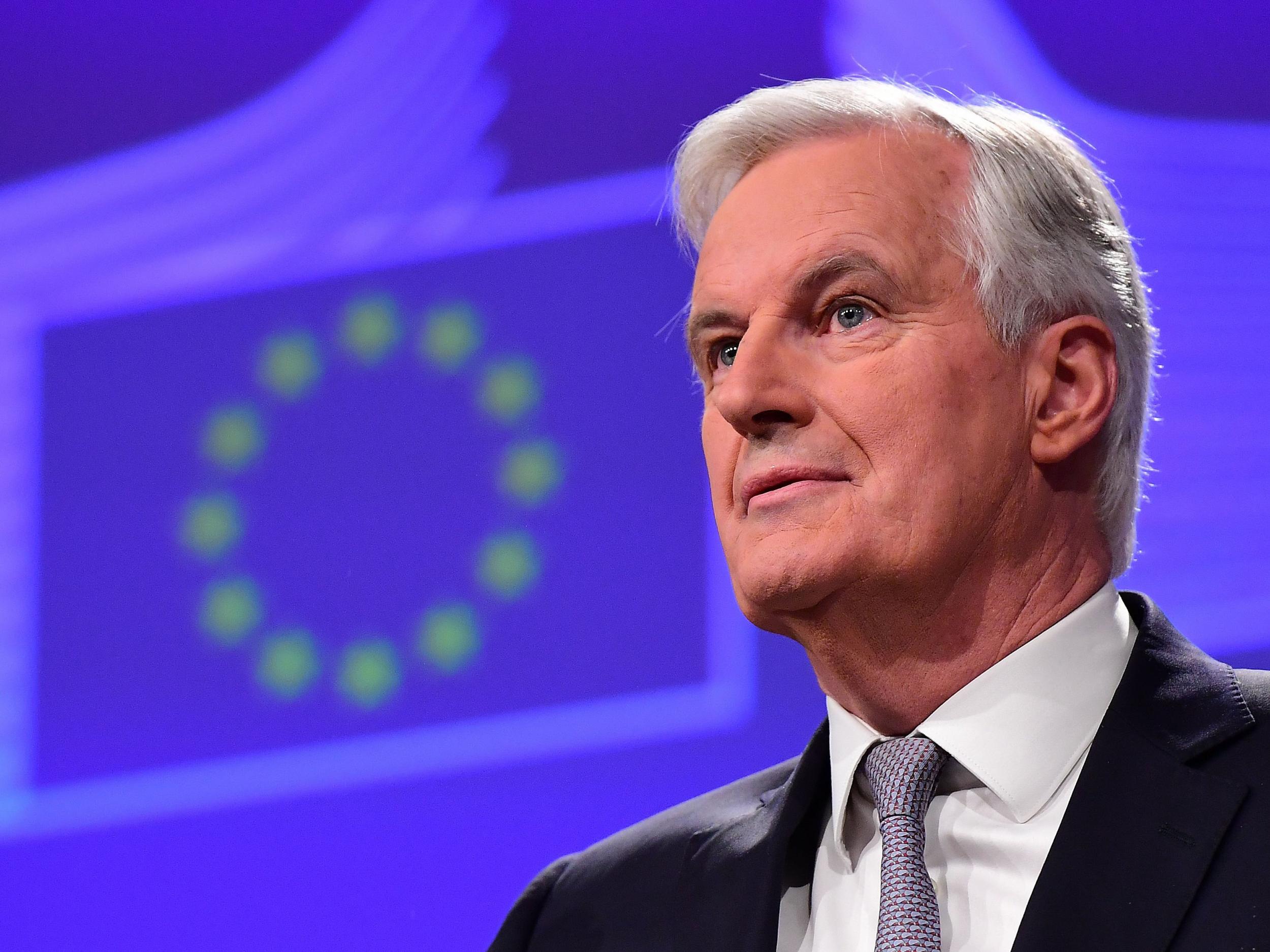Brexit: EU's chief negotiator tells Theresa May she won't get a new trade deal if she slashes taxes and rights
A deal depends on 'fair competition and high environmental, social and consumer protection standards' Prime Minister is told

Your support helps us to tell the story
From reproductive rights to climate change to Big Tech, The Independent is on the ground when the story is developing. Whether it's investigating the financials of Elon Musk's pro-Trump PAC or producing our latest documentary, 'The A Word', which shines a light on the American women fighting for reproductive rights, we know how important it is to parse out the facts from the messaging.
At such a critical moment in US history, we need reporters on the ground. Your donation allows us to keep sending journalists to speak to both sides of the story.
The Independent is trusted by Americans across the entire political spectrum. And unlike many other quality news outlets, we choose not to lock Americans out of our reporting and analysis with paywalls. We believe quality journalism should be available to everyone, paid for by those who can afford it.
Your support makes all the difference.The EU’s chief negotiator has warned it will crush Theresa May’s hopes of a new trade deal if she slashes business taxes, workers’ rights and environmental standards.
Michel Barnier said an “ambitious free-trade agreement” was possible if the two sides can first reach agreement on the ‘divorce bill’, EU citizens’ rights and Northern Ireland’s border.
But he warned it could only be agreed “provided that it ensures fair competition and guarantees high environmental, social and consumer protection standards”.
The warning flows from the EU’s fears that Britain, under a Conservative Government, will embark on a “race to the bottom” after Brexit.
Ministers will come under pressure to slash so-called ‘red tape’ to win a competitive advantage – partly to compensate for being out of the EU’s single market and customs union.
At the weekend, The Independent revealed that Michael Gove wants to rip up Brussels regulations on clinical trials for new drugs and on building near protected wildlife habitats, for example.
Theresa May has promised to protect existing workers’ right, but the Government rebuffed an attempt to put that commitment into law.
In an article for the Financial Times, Mr Barnier, the European Commission’s lead Brexit negotiator emphasised that Britain and the EU would first have to agree the exit terms.
He wrote: “This means agreeing on the orderly withdrawal of the UK before negotiating any future trade deal.
“The sooner we agree on these principles, the more time we will have to discuss our future partnership.”
Mr Barnier warned it was “a distinct possibility” that no exit agreement would be reached, which would have “severe consequences” and “undoubtedly leave the UK worse off”.
However, he did give the Prime Minister a boost by agreeing the future status of EU nationals in the UK – and British ex-pats in the EU – could be discussed “from day one”.
“First and foremost, we must protect the rights of the 4.5m citizens who have found themselves faced with an uncertain future in the place they call home,” the lead negotiator wrote.
“The 27 member states, and the European Commission, will work tirelessly to preserve the rights of European citizens across our continent. We are ready to discuss this issue from day one.”
But Mr Barnier also made clear Britain must agree to pay the so-called ‘divorce bill’ for its EU liabilities – which the EU has previously put at around £50bn.
“Beneficiaries of programmes financed by the European budget will need to know if they can continue relying on our support,” he said.
“The 27 member states will honour their commitments and we expect the UK to do the same – because it is the mutually responsible way to act.”
The EU would also “not stand for anything that weakens dialogue and peace in Northern Ireland”, Mr Barnier stressed.
He said: “If we cannot resolve these three significant uncertainties at an early stage, we run the risk of failure. Putting things in the right order maximises the chances of reaching an agreement.”
The article comes two days before Theresa May triggers the Article 50 exit clause, by delivering an eight or nine-page letter to the European Council of Ministers.
Join our commenting forum
Join thought-provoking conversations, follow other Independent readers and see their replies
Comments